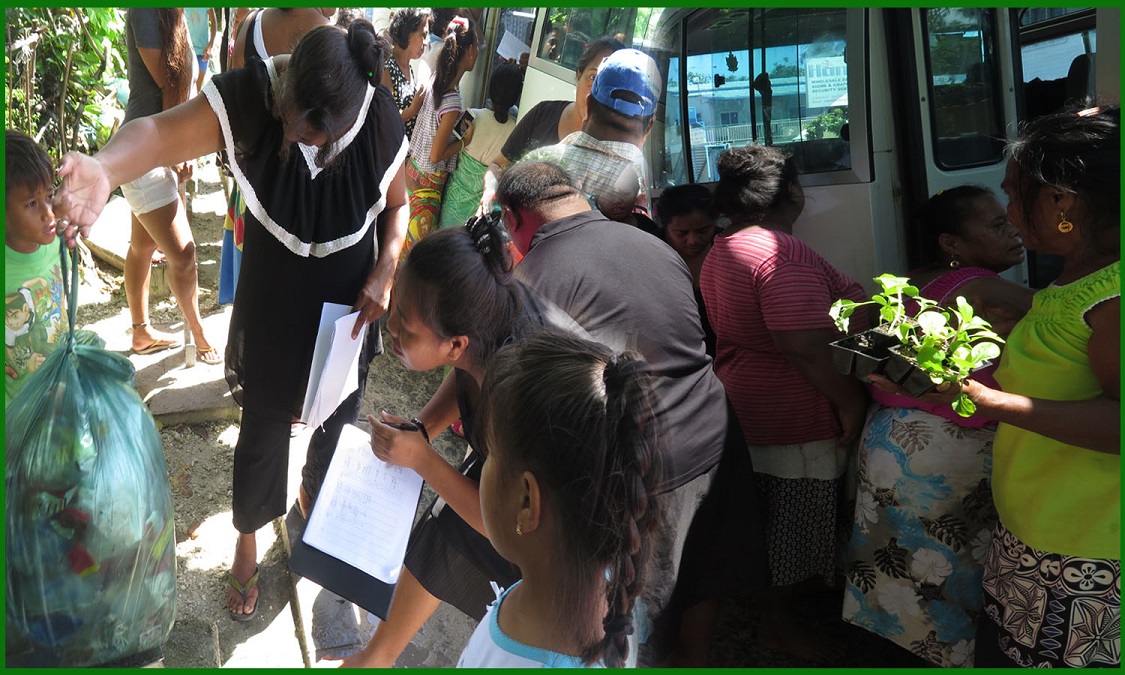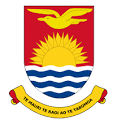Chemical and Waste Management Unit
The Chemical and Waste Management Unit (CWMU) aims to ensure a safe and healthy living environment for the residents of Kiribati. The CWMU is responsible for monitoring pollution and improving solid and hazardous waste management. Although operating country-wide, most of their efforts are focused on South Tarawa where the bulk of the population reside.
CWMU Objectives:
– To foster behavioural changes through education, awareness raising campaigns, enforcement of regulations, and capacity building that minimise waste generation and promote best waste management and pollution prevention practices;
– To ensure that the management of waste and control of pollution are financially self-sustaining;
– To mainstream chemical and waste management into national development programmes; and
– To facilitate long-term planning and preparations to respond to the impacts of global climate change in order to build the resilience of the environment through integrated waste management and pollution control programs undertaken at a national level through MELAD.
Below are some of the main ongoing activities undertaken which are also complementing the enforcement activities required under the Environment Act 2007.
– Organizing national clean-up activities on voluntary basis
– Public awareness raising programs on sound waste management practices
– Environmental auditing (private & government premises)
– Attending public complaints on waste and pollution issues [bad odor from pigsty, manhole discomfort, illegal dumping]
– Joint Enforcement Taskforce comprising of reps from Councils, Police and Health departments focusing on proper waste disposal
– Boarding foreign vessels
– Form part Councils waste management committee
– Providing technical support to Island Councils for waste management improvement
– Attending public complaint waste and pollution related issues
– Assist and Support Health Care Waste Management Committee
– Advising public on sound disposal practices (waste category, hazardous/toxic level)
– Assisting public in their complaint on irregular waste collection from councils.
– Implementing Multi Environmental Agreements (MEAs) requirements at the national level.
The following outlines important projects and initiatives that are implemented on Solid Waste Management
Kaoki Maange Recycling Project
The ‘KaokiMaange’ recycling project which exports aluminum cans, pet bottles, and wet cell batteries continues to be a success and provides a model both nationally and regionally.
Electronic Waste Project
The project undertook a stock taking and baseline study of e-waste in Kiribati and recommended sustainable solutions including recycling nationally and export overseas.
Urban Development Project (UDP)
The project is phase 2 of the Kiribati Solid Waste Management Programme funded by the New Zealand Government and has the following 3 expected outputs:
– Public and government-level awareness-raising about solid waste management
– Effective solid waste management services provided to urban users
– National and local level Solid Waste Management enabling environment strengthened
On an international front, Kiribati is a party to a number of pollution related conventions: These includes:
– London Convention 1972 on the control of waste dumping in the sea,
– Basel Convention on regulating the transboundary movements of hazardous wastes,
– Waigani Convention on banning the importation into Forum Island Countries of hazardous and radioactive wastes and to control the transboundary movement and management of hazardous wastes within the South Pacific region
– Stockholm Convention a global treaty to protect human health from persistent organic pollutants (POPs).
– Kiribati is also actively engaged in the on-going negotiation on the new legally binding instrument on the Minamata Convention on Mercury.

